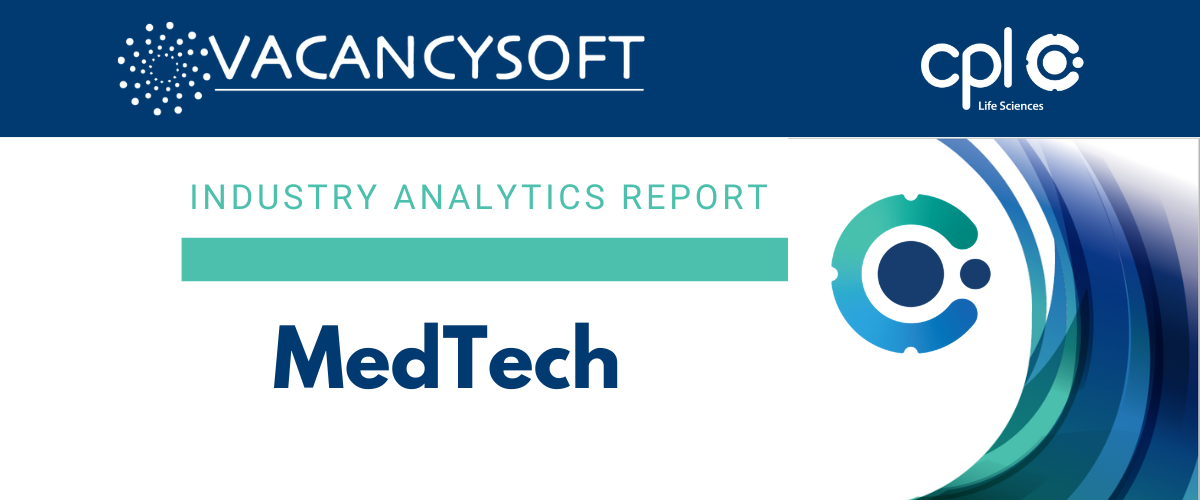Overview
The MedTech sector in the UK continues its upward trajectory in 2025, reflecting significant growth across scientific and non-scientific roles. This year, total vacancies are expected to reach new highs, with scientific positions accounting for approximately 22.3% of all openings. Monthly vacancy trends reveal robust activity, particularly in key regions and specialisations, highlighting a vibrant market driven by innovation and investment.
Regionally, the South East of England maintains its leading position in MedTech vacancies, with an estimated 400 openings in 2025, representing a 6.7% year-on-year increase. London remains the top city for scientific roles, forecasted to see a 15% rise, totalling 150 vacancies. Emerging hubs such as the Midlands and the North are experiencing surges in activity, reflecting broader regional development and investment.
Key sectors driving growth in 2025 include laboratory roles, quality assurance, and research and development (R&D). Companies such as ThermoFisher Scientific, Baxter, and Leica Microsystems lead the charge, with significant year-on-year increases in hiring.
___________________________________________________________________________________
Total Vacancies Overview
In 2024, the MedTech sector in the UK recorded approximately 6,500 vacancies, with scientific roles accounting for 1,425 of these, reflecting an 11.4% year-on-year growth compared to 2023. Scientific positions represented 21.4% of the total market, with non-scientific roles comprising 5,075, a 15.2% increase from the previous year. Monthly trends revealed July as the strongest month, with 176 scientific vacancies, showcasing a 64.5% month-on-month increase. Q3 of 2024 emerged as the most robust quarter, with 402 scientific vacancies, marking a 21.1% increase from Q2.
Looking ahead to 2025, MedTech vacancies in the UK are projected to surpass 7,000 roles, reflecting a 13.2% increase from 2024. Scientific positions are expected to reach 1,560, demonstrating steady growth of 9.5% year-on-year. These roles are predicted to constitute 22.3% of the total market, a slight increase from 2024. Non-scientific vacancies are anticipated to hit 5,440, marking a 14.6% increase from the prior year.
Monthly predictions for 2025 suggest July will remain the peak hiring period, with scientific vacancies expected to reach 190, reflecting a 7.9% month-on-month increase. The first quarter is forecasted to start moderately, with 400 scientific roles, followed by accelerated growth in Q2 and Q3. Notably, Q3 of 2025 is expected to see 420 scientific vacancies, indicating a 20.3% increase from Q2, continuing the mid-year hiring surge observed in 2024.
___________________________________________________________________________________
Skills in Demand
2024 Performance:
Sales roles accounted for the largest share of non-scientific vacancies in 2024, holding 25.4%, with 1,200 openings—an 18.5% increase from 2023. IT roles followed, comprising 21.7% of vacancies, while engineering positions grew by 11.7%. Marketing and public relations roles saw a solid 14% year-on-year increase.
For scientific roles, laboratory positions remained the most sought-after, with 197 vacancies—a 7.8% rise from 2023. Quality assurance (QA) roles grew significantly, posting 103 vacancies, up 28.6%. R&D and regulatory affairs roles maintained steady demand with 85 and 83 vacancies, respectively.
2025 Predictions:
Sales roles are expected to strengthen further in 2025, holding a 26.2% share of non-scientific vacancies with 1,425 openings—a 19.1% year-on-year increase. IT positions are projected to remain strong at 22%, while engineering roles will see 12.3% growth. Marketing and PR vacancies are anticipated to rise by 15%, reflecting broader organisational growth strategies.
In scientific roles, laboratory positions are forecasted to reach 215 vacancies—a 9.1% increase. QA roles will continue to surge, growing 31.2% to 135 openings. R&D roles are set for a 17.5% rise, totalling 100 vacancies. Regulatory affairs positions are expected to remain stable at 85 vacancies, with modest growth of 2.4%.
___________________________________________________________________________________
Companies to Watch
2024 Performance:
ThermoFisher Scientific posted 344 vacancies, reflecting a 6.9% increase from 2023, driven by growth in diagnostics and bioproduction.
Baxter reported 202 openings, up 16%, leveraging investments in advanced surgical solutions.
Leica Microsystems saw 96 vacancies, up 18.5%, fueled by demand for digital pathology technologies.
Avantor maintained steady hiring at 182 vacancies, marking an 8.9% increase with a focus on lab supply chain innovations.
ConvaTec experienced a 9.8% decline in roles, posting 74 vacancies due to strategic restructuring.
2025 Predictions:
ThermoFisher Scientific is expected to post 370 vacancies, a 7.4% increase, as it continues its expansion in diagnostics and bioproduction.
Baxter is forecasted to grow its hiring by 18.5%, reaching 240 vacancies, supported by its investments in connected care solutions.
Leica Microsystems is anticipated to see a 20.1% rise in vacancies, totaling 115 roles, reflecting its leadership in imaging technology.
Avantor is projected to post 200 vacancies, up 9.6%, driven by innovations in lab supply chains.
ConvaTec is expected to experience a 12.3% decline, with 65 vacancies, as it focuses on core product lines.
___________________________________________________________________________________
2025 Outlook
The MedTech sector’s strong performance in 2025 signals sustained growth across the UK, with scientific and non-scientific roles both expanding.
Key trends include:
Regional Diversification: Growth in the Midlands and the North highlights the increasing decentralisation of MedTech hubs beyond traditional strongholds like London and the South East.
Skills Evolution: The demand for QA and R&D professionals is set to grow significantly, underscoring the industry’s focus on innovation and compliance.
Company Strategies: Leading firms are diversifying their portfolios and investing in cutting-edge technologies, driving demand for skilled professionals.
Overall, 2025 promises to be a year of robust hiring and innovation in the UK MedTech sector, with opportunities spanning a broad range of disciplines and regions.
For the full report click here
